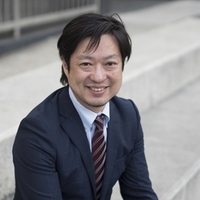Ken Jimbo
Keio University, Faculty of Policy Management, Faculty Member
- Dr. Ken JIMBO is a Professor of International Relations at Keio University and a Managing Director of Programs at the... moreDr. Ken JIMBO is a Professor of International Relations at Keio University and a Managing Director of Programs at the International House of Japan (IHJ/I-House). He is concurrently an adjunct Senior Research Fellow at the Canon Institute for Global Studies (CIGS). He served as Special Advisor to the Minister of Defense, Japan Ministry of Defense (2020), and Senior Advisor, The National Security Secretariat (2018-20). He also holds an appointment as Japan’s ASEAN Regional Forum Expert and Eminent Person (EEP).
His main research fields are in International Security, Japan-US Security Relations, and Japan’s Foreign and Defense Policy. He has been a policy advisor for various Japanese governmental commissions and research groups, including the National Security Secretariat, the Ministry of Defense, and the Ministry of Foreign Affairs. His policy writings have appeared in NBR, The RAND Corporation, Stimson Center, Pacific Forum CSIS, Japan Times, Nikkei, Yomiuri, Asahi and Sankei Shimbun.edit
Research Interests:
Desde que el primer ministro Junichiro Koizumi (abril 2001-septiembre 2006) dejo el cargo, la politica japonesa ha experimentado un fuerte malestar. Desde septiembre de 2006 hasta diciembre de 2012 (seis anos y cuatro meses) Japon tuvo... more
Desde que el primer ministro Junichiro Koizumi (abril 2001-septiembre 2006) dejo el cargo, la politica japonesa ha experimentado un fuerte malestar. Desde septiembre de 2006 hasta diciembre de 2012 (seis anos y cuatro meses) Japon tuvo siete primeros ministros, 12 ministros de Asuntos Exteriores y 14 ministros de Defensa.
Research Interests: History and Humanities
Looking back at the chronology of events from early summer to fall 2010, North Korea may have perceived that the ROK government’s response was weak, especially in terms of mobilising the international community to take collective actions... more
Looking back at the chronology of events from early summer to fall 2010, North Korea may have perceived that the ROK government’s response was weak, especially in terms of mobilising the international community to take collective actions against North Korea. The 9 July UN Security Council Statement on the Cheonan sinking failed to directly identify North Korea as responsible. International sanctions were further weakened as early as August when Hu Jintao met Kim Jong-il and pledged continued support for the North Korean economy. North Korea most likely calculated that its attempt to escalate aggression against the South was successful and that there was a margin for even further escalation.
Research Interests:
Research Interests:
Research Interests:
This article highlighted the diverse anxieties of US allies and partners towards the change of balance of power in the Indo-Pacific region as a core component of strategic concern.
Research Interests:
Research Interests:
Besides the ASEAN Regional Forum (ARF), there have been other emerging features of security cooperation in East Asia that are not necessarily based on geographical groupings but on security concerns and capability. These multidimensional... more
Besides the ASEAN Regional Forum (ARF), there have been other emerging features of security cooperation in East Asia that are not necessarily based on geographical groupings but on security concerns and capability. These multidimensional developments indicate that security cooperation in East Asia is far more complex today than a traditional bi‐multi nexus model. The “double‐track” approach is now entering into the new phase especially in the wake of various forms of multilateral security mechanisms that have been revealing in recent years in Asia‐Pacific. To analyze and discuss the emerging characteristics of the Asia‐Pacific security, this essay reviews, compares and assesses cases of both approaches in the Asia‐Pacific region. First, it analyzes the development process of the ARF, the prime body for security cooperation, with regard to its achievements and limits. Second, it tries to discover the new features of multilateral security based on “enhanced bilateralism” taking the examples of ‘Team Challenge” and Proliferation Security Initiative (PSI). Finally, it forecasts the future developments of these two approaches and how they will converge as a multi‐layered security mechanism in this region.
